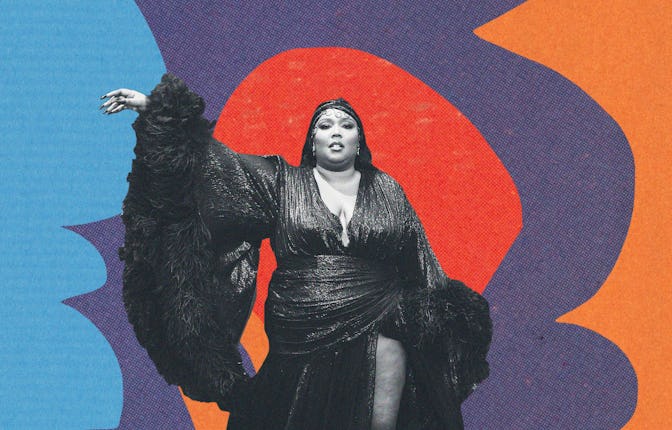Lizzo's new album 'Special' is anything but
While her voice is as buoyant and unburdened as ever, the songwriting sags under the weight of its own desperation.

Lizzo emerged in the early 2010s as the third-most-interesting member of two different trios in a Minneapolis rap scene that was growing more electronic and increasingly geared toward songs that rattled the foundations of small clubs. Her 2014 breakthrough album, Lizzobangers, was produced by Ryan Olson and Doomtree’s Lazerbeak and helped codify this sound; it made more topically and tonally three-dimensional a style that had been somewhat one-note in her work with The Chalice and GRRRL PRTY. She was acrobatic, a little mean, and less twee than song titles like “Bus Passes and Happy Meals” would suggest.
Big Grrrl Small World, her 2015 sophomore album which is no longer available on digital streaming platforms, began a transition toward a less raucous sound. A year later, she signed to an Atlantic imprint and released an EP, Coconut Oil, that was comically scattershot, lurching from awkward trap-gospel hybrids to vaguely Afrobeat syncopation, watered down post-Audio Perm electronica to the megahit “Good As Hell,” which was used best in ads for the buttons on your phone that summon $24 salads.
And then: she was a superstar. Cuz I Love You, which was released just in time for the final summer before the pandemic, included one single, “Juice,” that was nearly as big as “Good As Hell,” and its deluxe edition folded in an originally slow-burning one from 2017, “Truth Hurts,” that dwarfed it. At this point rap began to function in Lizzo songs the way it does in those by expressly pop artists—as a familiar texture, a rhythmic lingua franca. She can be an arresting singer, belting and then reeling off little in-jokes, shrinking into quieter mixes or commanding busier ones. But the songs as a whole became thinner, triter: The critic Rawiya Kameir wrote that Cuz I Love You’s songs could slot neatly into “any given rom-com or yogurt commercial.”
Its subjects and diction seem to be the ground pulp of online op-eds and Instagram captions pulled at random from the past half decade.
Special, her first album in more than three years, finds Lizzo drifting further in this direction. Its subjects and diction seem to be the ground pulp of online op-eds and Instagram captions pulled at random from the past half decade (“I live inside his head and pay no rent, yeah/It's lit, yeah”; “That’s my girl, we CEOs/And dancing like a C-E-ho”; “I did the work/It didn’t work”; “I’ve been twerking and making smoothies/It’s called healing”). It might be possible, on another album, to read lines like these as the sorts of things the artist would conceivably say or text to her friends. But the production on Special is so overdetermined as to make this notion ridiculous. While her voice is, at many points on the album, buoyant and unburdened, the songwriting sags under the weight of its own desperation.
This is true on the macro level as well as line-by-line. Songs like “Birthday Girl” and “I Love You Bitch” feel painstakingly designed to become default choices for certain types of social media posts, or for montages in the rom-coms Kameir writes about. They are not high-concept so much as high-literal. Though it runs only 35 minutes, Special grows tiresome for how secondary almost every song feels to its potential commercial uses, to the point where its more effective moments, like the slinking-then-ecstatic “Naked,” or “Coldplay,” which samples Quelle Chris and Chris Keys’s “Sudden Death,” are colored by skepticism that might be unfair to cast on a standalone single.
The most jarring transition on Special comes early, when the tinny opener “The Sign” gives way to lead single “About Damn Time” and its funk pastiche. The palette that Ricky Reed, Blake Slatkin, and Los Angeles jazz linchpin Terrace Martin use on the latter does not recur, and despite it being more agreeable than the dominant aesthetic direction, it actually undercuts the rest of Special by puncturing whatever Stockholm Syndrome might otherwise set in. As regrettable as the digitally overstuffed “Birthday Girl,” or “Everybody’s Gay,” or “I Love You Bitch” sound today, one can imagine future fans or critics defending — or at least identifying — them as representative of a camp maximalism that Lizzo tried to mold around her as a way to combat the drab, wallpaper quality of so much modern pop. But to provide counterexamples, however ordinary, serves only to highlight how cynical their triangulation is.